The NUNM undergraduate capstone is a multifaceted assignment that serves as a culminating academic and intellectual experience, serving as a representation of the student’s journey through the Bachelor of Science in Integrative Health Sciences program at NUNM. Students pursue a self-directed project or inquiry of their choice, thus providing an excellent an opportunity to combine academic achievement with real-world application. Capstone projects take many different forms, but all students produce a final product which demonstrates learning acquisition or conclusions and reflecting a deep understanding of the topic.
Here is a glimpse of the excellent work taken on by the Integrative Health Sciences students!
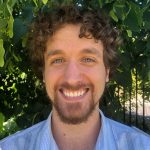 Zachary Baze
Zachary Baze
At NUNM I was able to become familiar with many methods of healing I was previously unaware of. For my capstone I decided to write an introduction to homeopathy that describes it as a system of medicine in an understandable way. My target audience was people with a frame of reference based in conventional western medicine such as myself. My hope is that my essay broadens perspectives and inspires others to learn more about different systems of medicine in practice around the world today.
 Baylee Gallatin
Baylee Gallatin
For my capstone I took a deep dive into the vast amount of current research that has been exploring the numerous effects that exercise can have on a variety of chronic conditions and diseases. I wrote a literature review that has summarized several of these studies finding significant benefits that regular exercise has on conditions including anxiety, depression, cardiovascular disease, type 2 diabetes, and cancer; all to support the notion that there is a vital role for exercise in the health care system of which has long been neglected.
 Lily Gibson
Lily Gibson
For my capstone project, I wanted to create an introductory resource about the physiology, psychology, and other important factors of pain and suffering that take into account the experience of the whole person. As a future healthcare provider, I believe it is an important tool to be able to hold space for people in the vulnerability of pain and suffering. With this in mind, I wrote a short book that I hope will act as a resource for those who are struggling with chronic pain, or anybody that wants to develop a deeper understanding of pain and how it affects people. This book is what I wish I had four years ago after I was in a car accident that left me struggling with chronic pain. I hope this resource is used as a tool for knowledge, understanding, and most importantly, empathy.
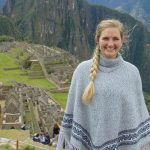 Jessica Jensen
Jessica Jensen
Ever since traveling to the peruvian amazon rainforest to study ethnobotany with Dr. Jillian Stansbury, I had the desire to fulfill my capstone project by creating an herbal monograph of Uncaria Tomentosa, also known as “cat’s claw”. This herb caught my attention due to its many uses taught by the Waciperi tribe as they use it to treat gastritis, ulcers, kidney stones, tumors, cancer, arthritis, in addition to its ability to modulate the immune system, and provide antioxidant effects. Within my work, I made it a point to give superior acknowledgement and recognition to the indigenous tribes who have used this herb for thousands of years for the same purposes that are now being proven in research today. This monograph consists of a detailed investigation and analysis of Uncaria tomentosa. My goal is to publish this work, and plan on presenting it to the American Herbal Pharmacopoeia, a nonprofit organization that publishes herbal monographs, in hopes that they might be able to use my work, and perhaps expand upon it. Given the numerous medicinal benefits of cat’s claw, I desire for it to reach a community of those in need of this powerful medicine. After graduation, I plan to work in the field pertaining to my degree, as well as continue my plant studies within an herbal program, all while I consider going back for my Doctorate of Naturopathic Medicine.
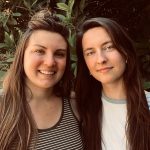 Mary McCallum
Mary McCallum
This capstone project explored something that is not talked about often enough in health care, the topic of sexuality. An online e-book called “Back into my Body” explores self-care practices to support sexuality. The content reflects our education both here at NUNM, and outside it, a well as our personal experiences with our healing paths. Part of our mission is to have this e-book available online and in print which we plan to do in the near future. We also plan to collaborate with non-profit organizations to help it reach more people of all different walks of life. We feel passionate about expanding and sharing this knowledge and making it accessible to all people. In the future we both plan to work in the field of sexuality and sexual health where we can continue to share our passion for this work with the world and bring more awareness and education to it.
 Myrissa Otterbein-Pyle
Myrissa Otterbein-Pyle
My capstone marks the completion of my time at NUNM and the start of my career in psychedelic science. I have been approved to complete a qualitative research study aiming to better understand how the subjective, individual experience with psilocybin mushrooms affects an objective position of interconnection. Facilitating cross-sectional, semi-structured interviews with ten volunteers about their psilocybin mushroom experiences will provide qualitative data for analysis. It is my hope to bring a heightened awareness to the psychological effects of psilocybin mushrooms. I am taking a social stance going beyond the neuro-biological mechanisms currently recognized as healing in the recent randomized clinical trials. This project is not possible without my inspiring mentors, John Phipps, PhD and Heather Zwickey, PhD. Thank you does not justify my level of gratitude!
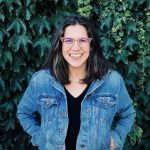 Chalice Stroebe
Chalice Stroebe
From menarche to menopause, the onset of puberty and the ever-evolving concoction of hormones throughout life, there are many rites of passage. For my capstone, I put together a storytelling event with the title Narrative Medicine: A Rite of Passage. I offered and created a space of exploration where a group of folks had the opportunity to express or unveil these defining moments in which they experienced a shift in their sense of self as a result of the shapeshifting hormones related to their sexuality and reproduction.
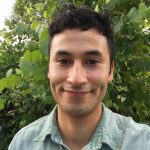 Alejandro Toledo
Alejandro Toledo
For my capstone project I decided to research what’s going on with the Oregon Psilocybin Service Initiative and other initiatives nationwide, which have an aim to: decriminalize and scientifically research psychedelic substances; to learn of the therapeutic uses; and how it can be utilized in a culturally sensitive manner, within our fields. Furthermore, I briefly wrote and delved into the history of psilocybin containing fungi and their cultural uses. As a future practitioner of traditional medicines and aspiring ambassador/advocate for the push of decriminalization, I felt it pertinent to investigate these areas of the topic at hand.
Want to see more student work? View additional Capstone Projects.